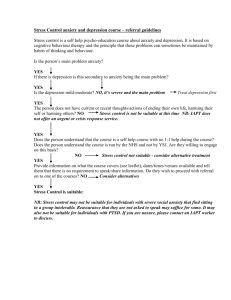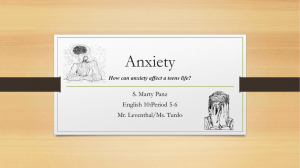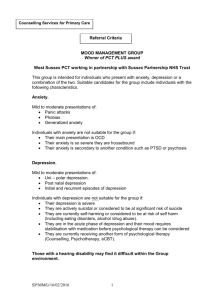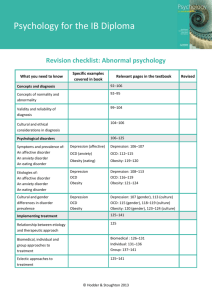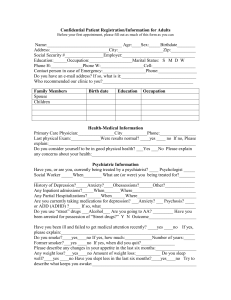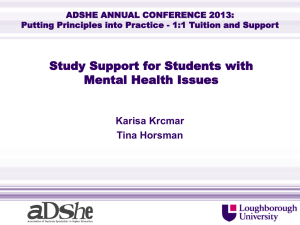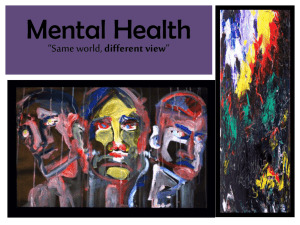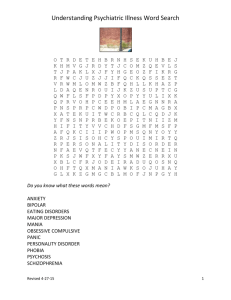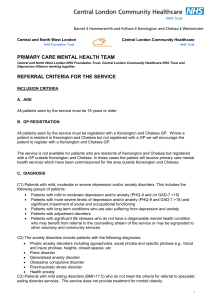Guide for Step 2 vs. Step 3 referral
advertisement
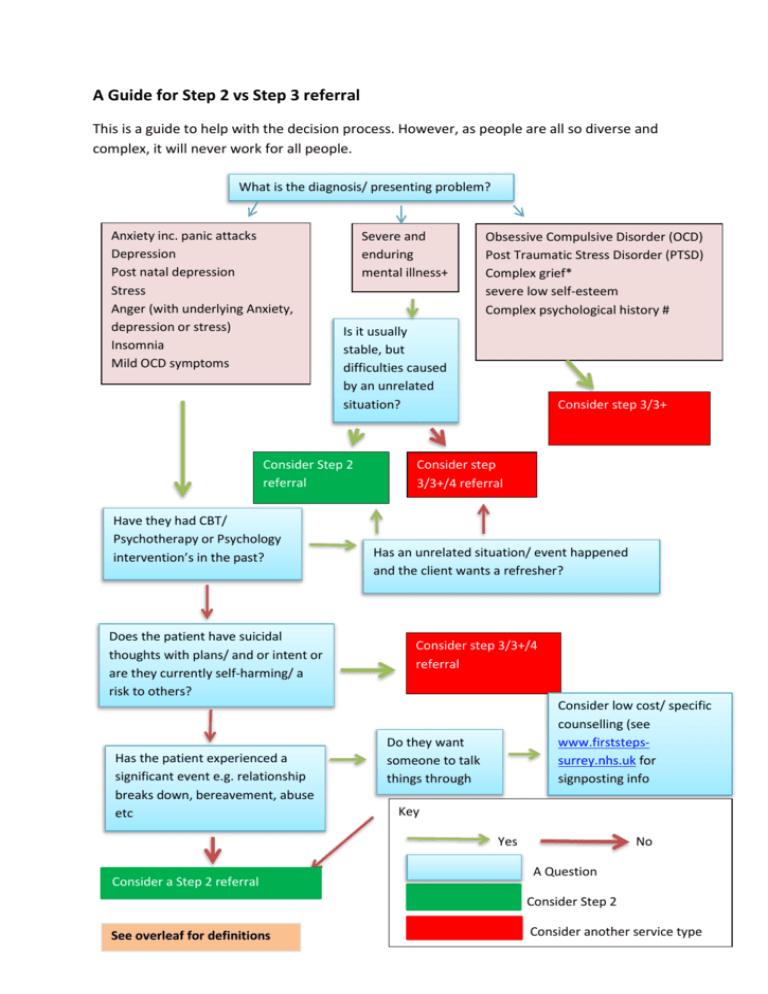
A Guide for Step 2 vs Step 3 referral This is a guide to help with the decision process. However, as people are all so diverse and complex, it will never work for all people. What is the diagnosis/ presenting problem? Anxiety inc. panic attacks Depression Post natal depression Stress Anger (with underlying Anxiety, depression or stress) Insomnia Mild OCD symptoms Severe and enduring mental illness+ Is it usually stable, but difficulties caused by an unrelated situation? Consider Step 2 referral Have they had CBT/ Psychotherapy or Psychology intervention’s in the past? Does the patient have suicidal thoughts with plans/ and or intent or are they currently self-harming/ a risk to others? Has the patient experienced a significant event e.g. relationship breaks down, bereavement, abuse etc Obsessive Compulsive Disorder (OCD) Post Traumatic Stress Disorder (PTSD) Complex grief* severe low self-esteem Complex psychological history # Consider step 3/3+ Consider step 3/3+/4 referral Has an unrelated situation/ event happened and the client wants a refresher? Consider step 3/3+/4 referral Consider low cost/ specific counselling (see www.firststepssurrey.nhs.uk for signposting info Do they want someone to talk things through with? Key Yes Consider a Step 2 referral No A Question Consider Step 2 See overleaf for definitions Consider another service type * Complex grief It is normal for all people to experience a grieving period after bereavement. Complex grief is an intense and long-lasting form of grief that takes over a person’s life. Complex grief refers to factors that interfere with the natural healing process. These factors might be related to characteristics of the bereaved person, to the nature of the relationship with the deceased person, the circumstances of the death, or to things that occurred after the death. + Severe and Enduring Mental illness Is a generic term that describes a mental illness that has a profound effect on a person’s ability to function over a long period of time. These long-term illnesses include schizophrenia, personality disorders and bi-polar disorder but can also include the most severe forms of depression and anxiety (most commonly Obsessive Compulsive Disorder (OCD) and Agoraphobia). # Complex psychological history Describes people who have had a significant or several significant experiences that have impacted on their mental health. Examples could include past abuse, rape, traumatic experiences, severe bullying, suicide or murder of a loved one etc. Drugs/ Alcohol misuse Talking Therapies are unlikely to be helpful if a person is misusing drugs/ alcohol and they do not feel that they are able to control this. A general suggestion is that if the drugs or alcohol are causing the depression/ anxiety the person needs a drugs/ alcohol service. If the anxiety/ depression is causing the person to use drugs/alcohol to cope and the person feels that they can control/ reduce/ stop their use to allow themselves to learn new ways of coping, then an IAPT service would be most helpful. Self harm Includes any act where a person makes a deliberate effort/ choice with the aim of causing themselves harm. This could include cutting, scratching, hitting, burning, poisoning, risk taking, starving self etc.
